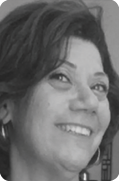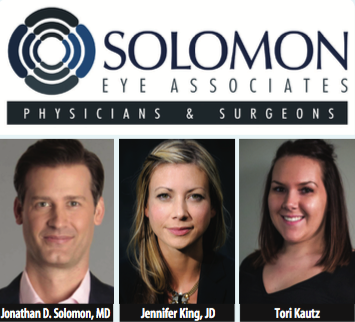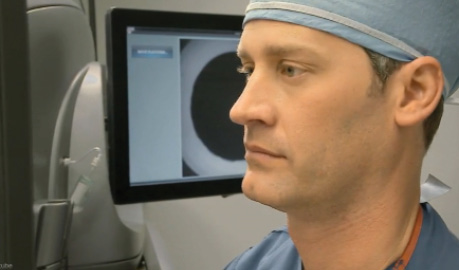
Stories abound about medical practices that are floundering because they continue to stubbornly battle trends in health care rather than adapt. If you lean in and listen carefully, however, you will hear about specialty practices across the country that are skillfully and successfully navigating the Zeitgeist.
Solomon Eye Physicians & Surgeons is a thriving example of a “boutique” practice that is steadily moving forward with an annual growth of approximately 20% per year since 2005. “My goal is to provide the best possible care; we focus on what we do well and aim to do it better than anybody else,” says Jonathan D. Solomon, MD, who attributes the practice’s accomplishments to two main things. “First, we listen to our patients, and second, we have the best technology. We work with industry very closely to make sure that it‘s known that, if there is a tool out there that will offer us an advantage in achieving a better outcome, we want it.”

The practice was founded almost half a century ago by his father, Stephen Solomon, MD, who worked alongside his anesthesiologist wife to provide personal, patient-focused ophthalmic care. Today, the Maryland-based practice is led by their son Jonathan, along with his practice director and wife, Jennifer King, JD. The younger Dr. Solomon says that, when his father started the practice in 1973, his vision was for it to be like a neighborhood practice where patients would consider his father to be sort of a primary care provider for eyes. After taking the reins 9 years ago, Dr. Solomon harnessed the power of his parents’ Mom-and-Pop paradigm and expanded on it. He ramped up the concierge service that was the hallmark of the practice from day 1, dove into community outreach efforts, added integrated care with optometrists, and eventually expanded into an affiliated site specifically dedicated to clinical research (see What’s New?). The formula has been a winning strategy in the highly competitive Beltway area around Maryland, Virginia, and Washington, DC (see Solomon Eye Physicians & Surgeons’ Practice Formula).
Watch it Now
Dr. Solomon discusses how to achieve a perfectly round capsulotomy with a femtosecond laser.
COMMUNITY
“The foundation of our practice is really rooted in community service,” says Dr. Solomon. “My father and my mother were a big part of the community health system, and to this day, we’ve been able to maintain that.” The practice’s involvement in the community is multipronged. For instance, it participates in the community’s annual hospital fair and sponsors a 10K Eye Run for Sight. Dr. Solomon is on the medical advisory board of and actively involved in the DC area’s Lupus Foundation. “To some extent, it’s important to maintain my parents’ legacy, but it’s also about maintaining the quality of community relations that have been cultivated over the course of 45 years to keep our neighbors healthy,” he says.
Another facet of the practice’s community involvement relates to the practice’s role in the local health care system. The practice uses a hospital-based emergency department and a hospital-owned, multispecialty ambulatory surgery center (ASC). “Working in the hospital system really allows us to be more engaged in the community,” stresses Dr. Solomon. The hospital is Prince George’s Hospital System, which recently joined with the University of Maryland Hospital Systems, and the hospital-owned ASC is Dimensions Surgery Center, of which Dr. Solomon is the medical director and also a member of the board of directors (for more, visit http://tinyurl.com/z2vnq7a).
“The relationship that we have been able to cultivate with our hospital system has been fruitful,” says Dr. Solomon. “As medical director of our ASC, one of the benefits is that I have some influence with respect to ambulatory care decisions, specifically in regard to ophthalmology, but it also allows me to know a little bit more about the participating gastroenterology, general surgery, otolaryngology, urology, and orthopedics practices. In my role as medical director, I am obliged to stay current on what they’re doing and some of the issues that they may encounter. Ultimately, it allows for stronger communication and stronger relationships with health care providers in my community.”
WHAT’S NEW?
The Bowie Vision Institute opened in 2013 as the arm of Solomon Eye Physicians & Surgeons that is exclusively dedicated to research and clinical trials. “Interacting with our industry partners is a big part of what we do,” says Jonathan Solomon, MD. Being able to offer patients access to the newest technology and therapeutics is among the benefits of participating in clinical research, he points out. “There are situations where patients may not necessarily be able to afford certain things, and in those cases, we look at every avenue for making sure that we get creative and clever with financing options, and then there are other situations where patients may want to enroll in a clinical study, and our work with The Bowie Vision Institute makes that possible.” In cases where creative financing or clinical trial participation does not appropriately address the patient’s needs, he says, they sometimes adjust costs so that the patient can access the necessary service.
Having early access to cutting-edge technology is another benefit of clinical trial participation. Practice Director Jennifer King, JD, points out that the practice sometimes stands out from other area eye care practices because of its stellar roster of technologies. “We were the first practice in the greater Maryland, [Washington] DC, Virginia area to offer 3-D surgical guidance, and Dr. Solomon was the first physician in the area to offer the Glaukos iStent [Trabecular Micro-Bypass Stent] for microinvasive glaucoma surgery or MIGS,” she notes.
Ms. King mentions that the practice was a ripe incubator for clinical trial research, because “we have such a broad-based, diverse patient population, and that makes us an ideal place for a variety of clinical trials, including refractive, glaucoma, and keratoconus studies. A lot of companies that work with Dr. Solomon saw the opportunity here, and he had often expressed an interest in research; as a result, we developed the Bowie Vision Institute.”
Some of the notable studies in which Solomon Eye Physicians & Surgeons has participated include
•Abbott Medical Optics, Tecnis Toric 1-Piece IOL Registry
•Avedro, accelerated corneal collagen cross-linking
•Bausch + Lomb, Crystalens/Trulign
•Carl Zeiss Meditec, Callisto Surgical Suite
•Glaukos, US investigational device exemption iStent GC-008
•Lensar, Streamline Iris Registration on the Lensar Laser System
•Ocular Therapeutix, ReSure Sealant
•TrueVision Advanced 3-D Surgical Guidance
He points out that it is not unusual for eye care practices to become isolated from the community, because they have their own ASCs and are not working in the hospital. “When that happens, they’re not regularly interacting with primary care doctors or with other subspecialty care practitioners, and it can become easy to be a single ship out on the water,” he explains. “I think we all try to do our best to communicate with our colleagues, whether it be through letters or a phone call for curbside consultation, but when you know the primary care physician personally, and you can pick up the phone and explain that one of your patients needs a bit more help, it takes it to a whole other level.” He says he is often asked to join groups of ophthalmic surgeons who are planning to open a private ASC. Although it might be a lucrative endeavor, he refrains. “My choice to practice medicine in a way that keeps me integrally involved in the community goes beyond financial considerations,” says Dr. Solomon.
Practice Director Ms. King adds that Dr. Solomon’s role as medical director enables him to wear several different hats. “He helps make decisions to ensure that the surgical center operates in a cost-effective manner, and he negotiates contracts with equipment suppliers, and because of that, sometimes, he’s able to bring technologies in that otherwise might be cost prohibitive without the cushion made possible by the hospital,” she says. “Along those same lines, he’s also able to help patients access pro bono services. These types of things are more easily done because of the support of the hospital.”
SHARED CARE AND EDUCATION
Another element that makes Solomon Eye Physicians & Surgeons a leading contender in the DC area is its involvement with continuing education and shared care with optometrists. “When my father gave me the opportunity to make this practice my own, naturally, I wanted to create a healthy, vibrant practice,” explains Dr. Solomon. “One of the first things that I did was set up a quarterly educational program where we give seminars to our referring optometric colleagues, and this has enabled us to cultivate a strong relationship with the eye care community in our region.” He points out that, although integrated care relationships have not always been popular, they have been uniquely strained in the area around DC. “I did my best to bring the integration of care that I encountered on the West Coast, where I did my training, back here to this region,” Dr. Solomon says. He completed his postgraduate training at the Casey Eye Institute and Devers Eye Institute of Portland, Oregon. “We brought two skilled, well-educated, open-minded optometric physicians into the practice to assist with postoperative care, handling everything from posttransplant care to postrefractive cataract and post-LASIK care. They basically provide the full capacity of medical care under guidance and under tutelage [of] my father; Beth Schwartz, MD, another cornea specialist on our staff; and me.”
Another aspect of relationship building with area optometrists lies in the fact that Solomon Eye Physicians & Surgeons does not dispense eyeglasses or contact lenses. “We do not offer optical [services] and never have,” explains Ms. King, “which is another thing that sets us apart from some other area ophthalmologists. So, we comanage with referring optometrists, and we send all of our patients back out to our optometric referral base to get their glasses or contacts.”
In addition, the practice offers continuing medical education events to ophthalmologists affiliated with the community hospital system. “If a primary care doctor, endocrinologist, or rheumatologist wants to learn more about diabetic eye disease or how lupus may have comorbidities with Sjögren syndrome and chronic dry eye [disease], these events help broaden their perspective,” Ms. King explains. “We believe that educating not only our patients or community but [also] our colleagues on eye care is critically important, and then we also give them a platform to educate us.” Education is key to collaborative care, according to Dr. Solomon. “It tightens the gap of consolidated care and integration of care,” he says. “We want our primary care physicians to feel comfortable communicating with us and sharing information with us with the ultimate goal of better patient care.”
SOLOMON EYE PHYSICIANS & SURGEONS’ PRACTICE FORMULA
• affiliated with a community hospital system
• Jonathan Solomon, MD, performs surgery in a hospital-owned ambulatory surgical center
• involved in community outreach initiatives
• community outreach drives patient referrals
• committed to shared care with optometrists
• invests in the integration of care via education/communication
• facilitates quarterly continuing education programs for optometrists
• holds continuing medical education events for hospital-affiliated specialists and primary care physicians
• offers concierge care from dedicated,knowledgeable staff members
• allows patients to have access to the newest and best technology and therapeutics
CONCIERGE CARE
Dr. Solomon points out that even the best technology cannot make up for a lack of attention to patients’ comfort and satisfaction. “We’re living in an experience economy, so it’s not so much what you provide [but] how you provide it, and we’re committed to making the experience as enjoyable as possible for our patients,” he says. To that end, he explains, all of the management and staff have been trained to provide Four Seasons-like care.
Tori Kautz is the practice’s surgical coordinator and marketing director. The effort and attention to detail that she dedicates to the comfort of each surgical patient is arguably responsible for a healthy portion of the practice’s steady growth. Ms. Kautz discusses IOL options with patients after their consultation with Dr. Solomon. She answers questions about what patients can expect from the lens/package selected and what they need to do pre- and postoperatively; she helps patients understand and arrange financing when applicable, and she accompanies them into surgery and remains with them throughout the procedure. If a patient has a last-minute question, Ms. Kautz is there to address his or her concerns or calm frazzled nerves. She also helps patients through the insurance and financing mazes. “We offer two interest-free financing programs, and as far as insurance is concerned, I also make any necessary calls to let patients know their deductible, copayments, co-insurances, and anything like that upfront so they won’t have any surprises,” she says. “I’m with the patient from start to finish.”
Dr. Solomon says the surgical coordinator’s role as a patient liaison developed out of necessity. “When you’re dealing with out-of-pocket expenses that are coupled with insurance-covered options, as part of a shared-billing scenario, it can be very confusing,” he says. “The last thing you want is to have an unhappy patient because there was a lack of good communication. Although we try to explain things in terms that anybody can understand, sometimes, it does require a little bit of interpretation, and she’s an integral part of that process.”
He points out that Ms. King is a crucial part of the process that is geared toward making patients feel like their comfort and satisfaction are paramount. Dr. Solomon adds that her background in finance and law is invaluable on many levels. “There are so many legal considerations, and Jennifer does a phenomenal job of trying to elucidate what is required of us as a practice, what is required of me as a physician, and then conveying the information to the patient in a way that they can comprehend,” says Dr. Solomon. “I’m the on-field talent; I do surgery because that’s what I do best, but everything beyond that—from making sure that the place runs smoothly to making sure that the staff is comfortable with their assigned roles and that they are meeting the needs of our patients—that falls squarely on the shoulders of Jennifer.”
Ultimately, catering to the needs of each patient is crucial to the practice’s formula for success. “When a patient comes into the practice for a consult, I always consider it to be somewhat of an interview,” Dr Solomon says. “[He or she is] being referred into the practice, so we really need to put our best foot forward. That means everyone from the person who sends out a free screening packet of information introducing them to our practice, to the person who greets them at our front door, to the individual who helps the patient determine what their next step is as they’re checking out. They should feel comfortable, they should not feel pressured, they should not feel as if they are waiting excessively, and if they are, they should feel comfortable telling us.”
Rochelle Nataloni
• freelance medical writer with 25 years’ experience specializing in eye care, aesthetics, and practice management
• (856) 401-8859; rnk2020@comcast.net; Twitter @JustRochelleN; www.linkedin.com/in/rochellenataloni



